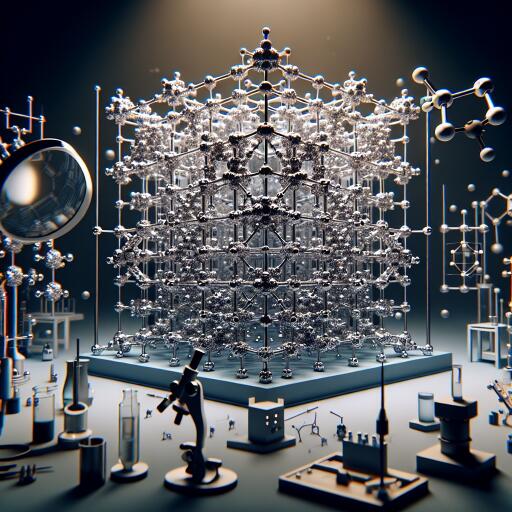A Comprehensive Transformer-Based Approach for High-Accuracy Gas Adsorption Predictions in Metal-Organic Frameworks
In the ever-evolving world of material science, the introduction of machine learning techniques has heralded a new era of innovation, particularly in the development and analysis of nanoporous materials like metal-organic frameworks (MOFs). Among the most significant advancements is the development of the Uni-MOF framework, a pioneering effort that integrates transformer-based machine learning to achieve remarkable precision in predicting gas adsorption in MOFs. This comprehensive approach not only enhances the accuracy of predictions but also ushers in a new level of efficiency and applicability to engineering challenges, marking a significant milestone in the field of materials science.
The Uni-MOF Framework: Bridging the Gap Between Theory and Application
The Uni-MOF framework stands out for its unique approach to material science predictions by employing a method that initially pre-trains on three-dimensional nanoporous crystals before fine-tuning for multitask prediction in downstream applications. This method has proven especially beneficial for handling large-scale unlabeled data and addressing the challenge of inadequately supervised training datasets. By collecting an extensive dataset of MOF structures and synthesizing over 300,000 MOFs, the framework expands the horizons of material genomics, offering a robust platform for the high-throughput construction of MOFs and COFs (covalent organic frameworks).
Enhancing Prediction Capabilities through Diverse Spatial Configurations
At the core of Uni-MOF’s success is its ability to deeply understand the material’s spatial configuration, including crucial chemical bonding information. This understanding is achieved through innovative pre-training strategies, such as employing prediction tasks for masked atoms, similar to the strategies used in the development of BERT for natural language processing. Furthermore, the framework introduces noise to MOF coordinates during pre-training, enabling the reconstruction of three-dimensional positions from the noisy data and enhancing model robustness.
Fine-Tuning with an Extensive Database for Predictive Accuracy
The fine-tuning stage of Uni-MOF leverages extensive datasets generated through custom data generation processes. This stage uses around 3,000,000 labeled data points across various adsorption conditions, allowing for accurate prediction of adsorption capacities under a wide range of states. Consequently, Uni-MOF emerges as a unified framework, capable of predicting multi-system adsorption properties with high accuracy.
Uni-MOF’s Approach to Predictive Modeling
Uni-MOF’s methodology simplifies the predictive modeling process by obviating the need for laboriously identifying human-defined structural features. The framework relies on the input of the Crystallographic Information File (CIF) of MOFs, along with relevant parameters like gas, temperature, and pressure, to forecast gas adsorption properties. This self-supervised learning strategy, coupled with an abundant database, ensures high accuracy in predictions across a broad spectrum of operating parameters, solidifying Uni-MOF’s position as an efficient estimator for gas adsorption in nanoporous materials.
Comprehensive Testing and Validation
The efficacy of Uni-MOF has been rigorously tested against mixed-state databases for gas adsorption, demonstrating its robustness and superiority in predicting gas adsorption capacities. Even in databases with limited data points, Uni-MOF achieved excellent prediction accuracy, showcasing its remarkable generalizability and utility in practical engineering applications. Despite challenges such as data bias and the complexity of transferring learning across diverse gases, Uni-MOF displayed exceptional prediction performance, adapting effectively to a wide range of gases and conditions.
The Future of Material Science and Machine Learning Integration
The success of the Uni-MOF framework heralds a new era in material science, one where the integration of artificial intelligence and machine learning techniques can address practical and scientific challenges with unprecedented efficiency and accuracy. The continual update and expansion of databases, along with improvements in predictive modeling, will further enhance Uni-MOF’s applicability across various domains of material science. As a versatile predictive platform, Uni-MOF not only represents a significant breakthrough in the application of machine learning techniques but also holds tremendous promise for the future of material research and application.
In conclusion, the Uni-MOF framework exemplifies the transformative power of combining advanced machine learning techniques with material science, offering a novel approach that significantly improves the predictability and efficiency of gas adsorption in MOF materials. This groundbreaking research opens up new avenues for the development and analysis of nanoporous materials, paving the way for innovative applications in various fields.










